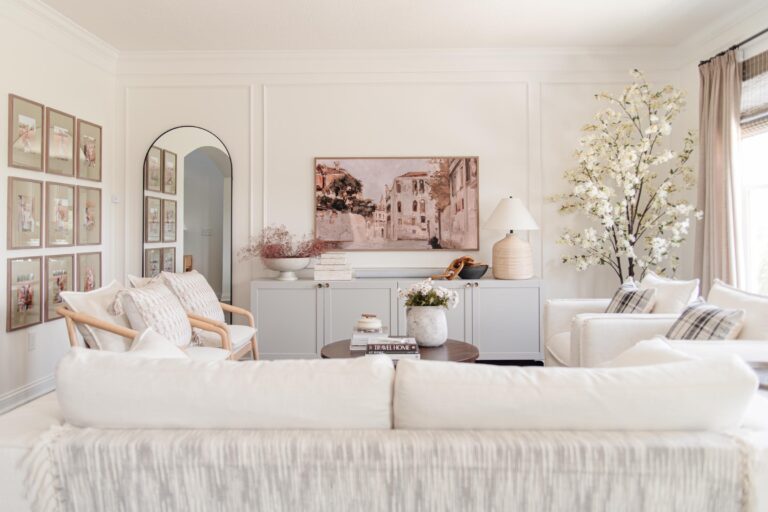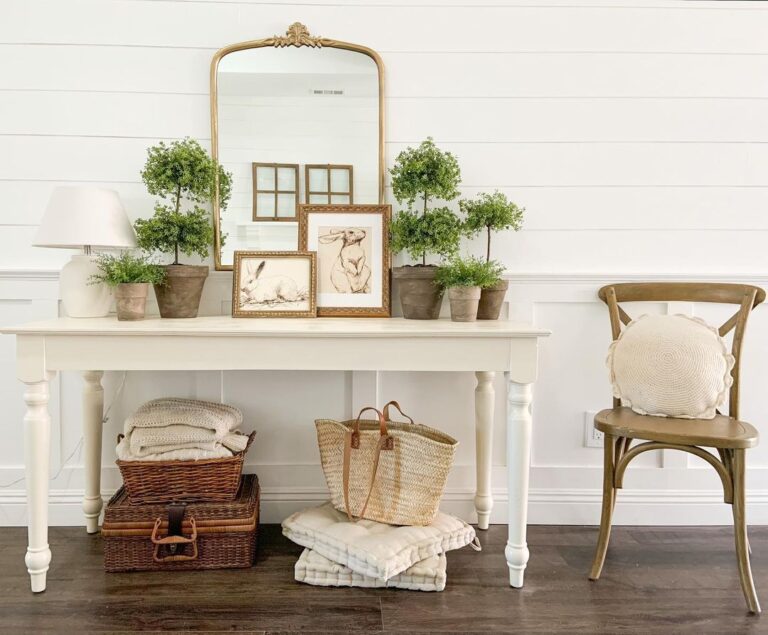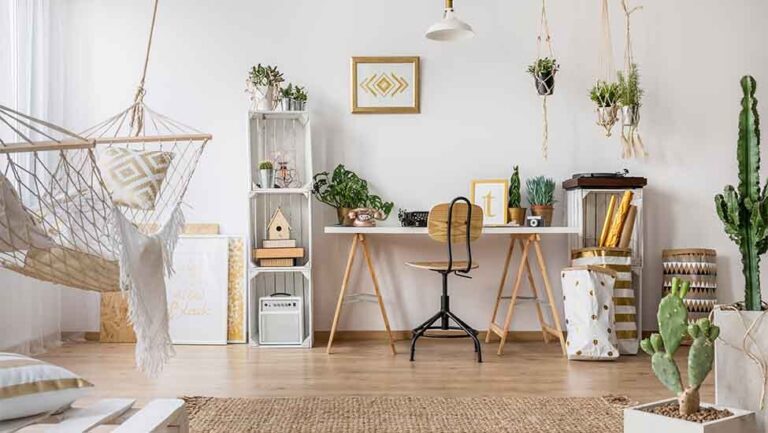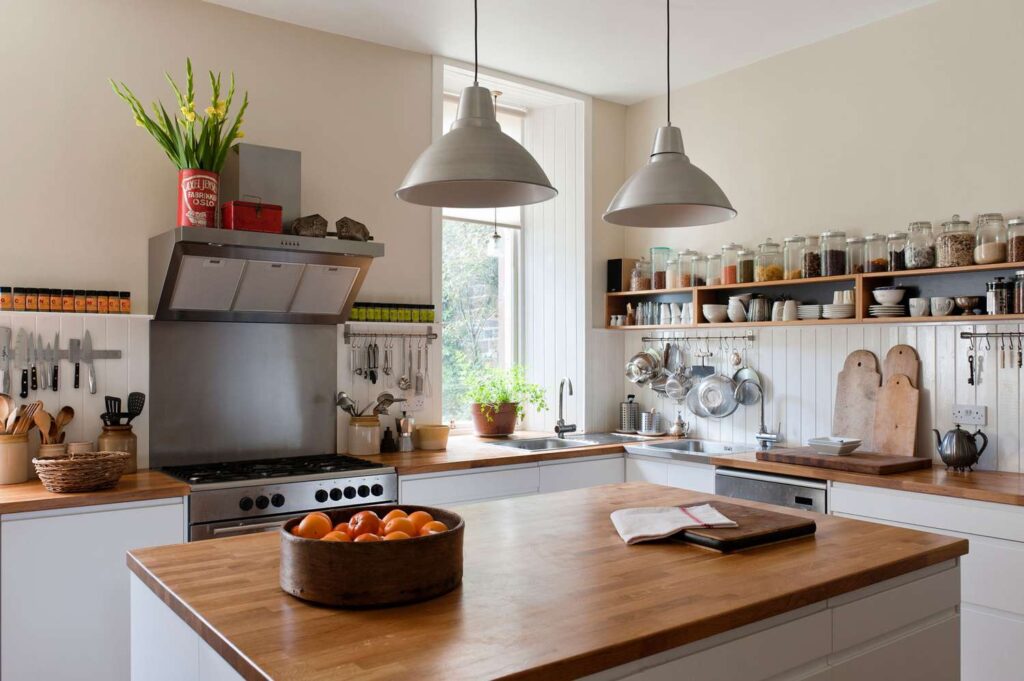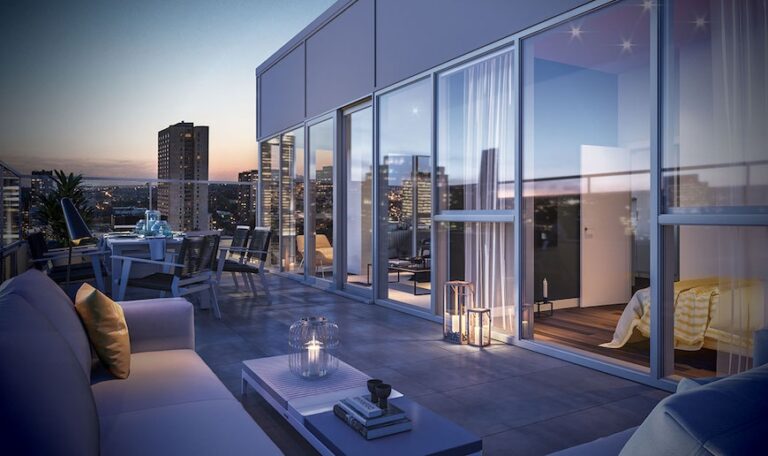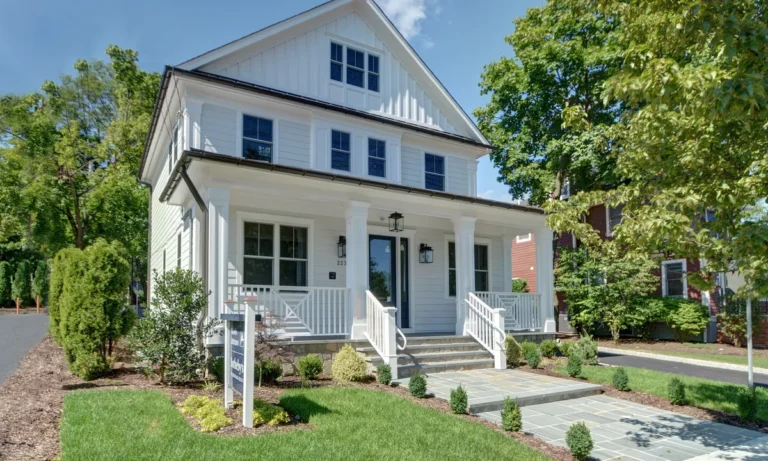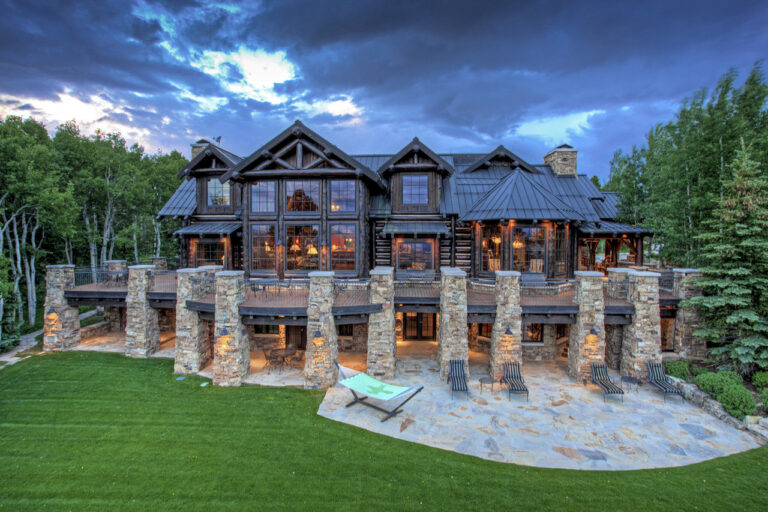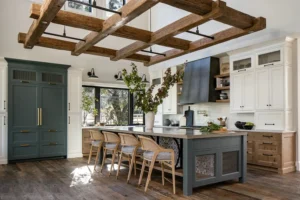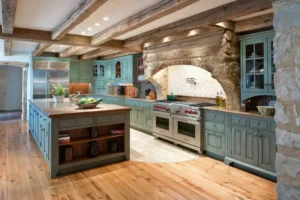It was a typical Saturday morning when my husband and I decided to give our kitchen a much-needed makeover. The old laminate countertops were chipped and stained and had seen better days. We wanted a material that would look great and bring warmth and character to the heart of our home. After spending hours browsing design blogs and watching home renovation shows, we finally found the perfect solution—butcher block countertops. The moment we saw them, we were hooked. The rich, natural wood grain and the inviting texture immediately transformed any kitchen into a warm, cozy space. It wasn’t just about the aesthetics either; butcher block offered a unique blend of functionality and style that had us wondering why we hadn’t considered it sooner. But as with any major home project, we wanted to be sure we were making the right decision. Was butcher block durable enough? How much maintenance would it require? And most importantly, would it fit within our budget? We discovered through research that butcher block countertops offer a surprisingly versatile, affordable, and eco-friendly option that has been gaining popularity in recent years.
What Are Butcher Block Countertops?
Butcher block countertops combine long wooden strips, typically hardwoods like maple, oak, cherry, or walnut, to create a smooth, solid surface. The wood is treated and sealed, making it suitable for kitchens and other workspaces. Traditionally, butcher block was used in butcher shops and meat processing areas (hence the name) due to its durability and ability to withstand repeated use. Today, it has found its way into residential kitchens, offering a warm, organic alternative to stone or laminate surfaces.
The Popularity of Butcher Block Countertops
In recent years, butcher block countertops have surged in popularity, driven by the increasing trend toward natural materials in home design. According to a 2022 report by the National Kitchen & Bath Association (NKBA), 43% of homeowners opt for natural materials like wood and stone in their kitchen renovations, with butcher blocks leading the charge in the wood category (1). Additionally, data from Houzz suggests that searches for “butcher block countertops” increased by 27% year-over-year in 2023, highlighting a growing interest in these countertops (2).
Part of the appeal lies in butcher block’s flexibility. It can work in various kitchen styles—from rustic farmhouse to modern minimalist—and offers a tactile warmth that contrasts with the often-cold feel of materials like granite or quartz.
Types of Butcher Block Countertops
There are several types of butcher block countertops, and each offers a slightly different look and feel based on how the wood is cut and assembled. Here’s a breakdown of the most common styles:
- Edge Grain: This is the most popular and affordable option. The wood strips are placed with the edges facing up, giving the countertop a long, linear grain pattern. Edge grain butcher block is durable and versatile, making it ideal for kitchen countertops and islands.
- End Grain: In the end grain butcher block, the wood strips are turned so that the ends of the boards face upward. This creates a checkerboard pattern that is both visually interesting and incredibly strong. End-grain countertops are known for being highly resistant to knife marks and wear, which is why they are often used in cutting boards.
- Face Grain: Also known as flat grain, this option uses the widest part of the wood planks. Face grain butcher block offers a smooth, continuous appearance with fewer visible seams, but it is less durable than edge or end grain and may show knife marks more easily.
Each type of butcher block has unique characteristics, so it’s essential to consider how you’ll use the countertop when making your choice.
Pros of Butcher Block Countertops
- Aesthetic Appeal and Warmth
One of the most compelling reasons to choose butcher block countertops is their natural beauty. The rich grain and warm wood tones instantly create a welcoming, homey atmosphere in any kitchen. Whether you opt for the classic light hues of maple or the deep, rich walnut tones, butcher block adds character and texture that can’t be matched by stone or synthetic materials. According to a National Association of Home Builders survey, 67% of homeowners chose butcher block countertops for warmth and visual appeal (3).
- Affordability
Butcher block is relatively affordable compared to natural stone countertops like granite or marble. While the price varies depending on the type of wood and thickness, butcher block typically ranges from $40 to $100 per square foot, whereas granite can cost upwards of $200 per square foot. For budget-conscious homeowners, butcher block offers a high-end look without the premium price tag. Additionally, DIYers often appreciate that butcher blocks can be installed without professional assistance, reducing costs.
- Sustainability and Eco-Friendliness
Wood is a renewable resource, making butcher block countertops more eco-friendly than synthetic materials. If sustainability is a priority for your home, you can even opt for FSC-certified wood, which ensures that the timber comes from responsibly managed forests. Many companies also offer countertops made from reclaimed wood, which gives old timber a second life and reduces waste.
- Versatility and Ease of Repair
Another advantage of the butcher block is its versatility. Depending on your preferences, it can be stained, oiled, or left untreated; with the right finish, it can fit into various kitchen styles, whether for a modern look or a more rustic farmhouse vibe. Additionally, unlike stone or laminate, scratches and dents can often be sanded out, and regular oiling keeps the wood looking fresh.
Cons of Butcher Block Countertops
- Maintenance Requirements
While butcher block countertops offer plenty of aesthetic and functional benefits, they require more upkeep than stone surfaces. Applying a food-safe mineral oil or beeswax every few months is essential to prevent the wood from drying out or becoming stained. This helps seal the wood and protects it from moisture. Homeowners should also be mindful of spills, particularly acidic substances like vinegar or wine, which can stain the surface if left for too long.
- Susceptibility to Scratches and Dents
Although end-grain butcher block is highly resistant to knife marks, edge, and face-grain varieties are more prone to scratches and dents. However, as mentioned earlier, these can often be sanded out and re-oiled, allowing the surface to be restored relatively quickly. Still, if you prefer a pristine, flawless countertop, butcher block may not be the right choice.
- Vulnerability to Water Damage
Wood and water sometimes mix poorly, and butcher block countertops are no exception. If not adequately sealed, the butcher block can absorb water, leading to warping, staining, or mold growth. It’s crucial to wipe up spills promptly and ensure that the wood is regularly treated with oil or sealer to protect it from moisture damage.
Butcher Block vs. Other Countertop Materials
When deciding between butcher block and other popular countertop materials like granite, quartz, or laminate, it’s essential to weigh the pros and cons of each:
- Granite: While granite is incredibly durable and resistant to heat, it lacks wood’s warmth and natural texture. Granite is also more expensive, often requiring professional installation.
- Quartz: Engineered quartz countertops are non-porous, making them resistant to stains and bacteria. However, they can be significantly pricier than butcher blocks and need more wood’s organic, handcrafted appeal.
- Laminate: Laminate is affordable but doesn’t offer the same durability or aesthetic value as a butcher block. Once laminate is damaged, it’s challenging to repair, whereas butcher block can often be sanded down and refinished.
Conclusion:
Is Butcher Block Right for You?
Butcher block countertops are an excellent choice for homeowners seeking a warm, natural, and versatile surface that complements a wide range of kitchen styles. While they require more maintenance than stone or synthetic options, their affordability, eco-friendliness, and ability to be easily repaired make them a worthwhile investment for many. Plus, the unique beauty and character that butcher block brings to a kitchen are unmatched by any other material.
If you’re considering a kitchen remodel, butcher block countertops might be the perfect solution to create a warm, inviting space where everyone feels at home. With some care and attention, your butcher block countertops can last for years, providing both functional workspace and timeless style.

